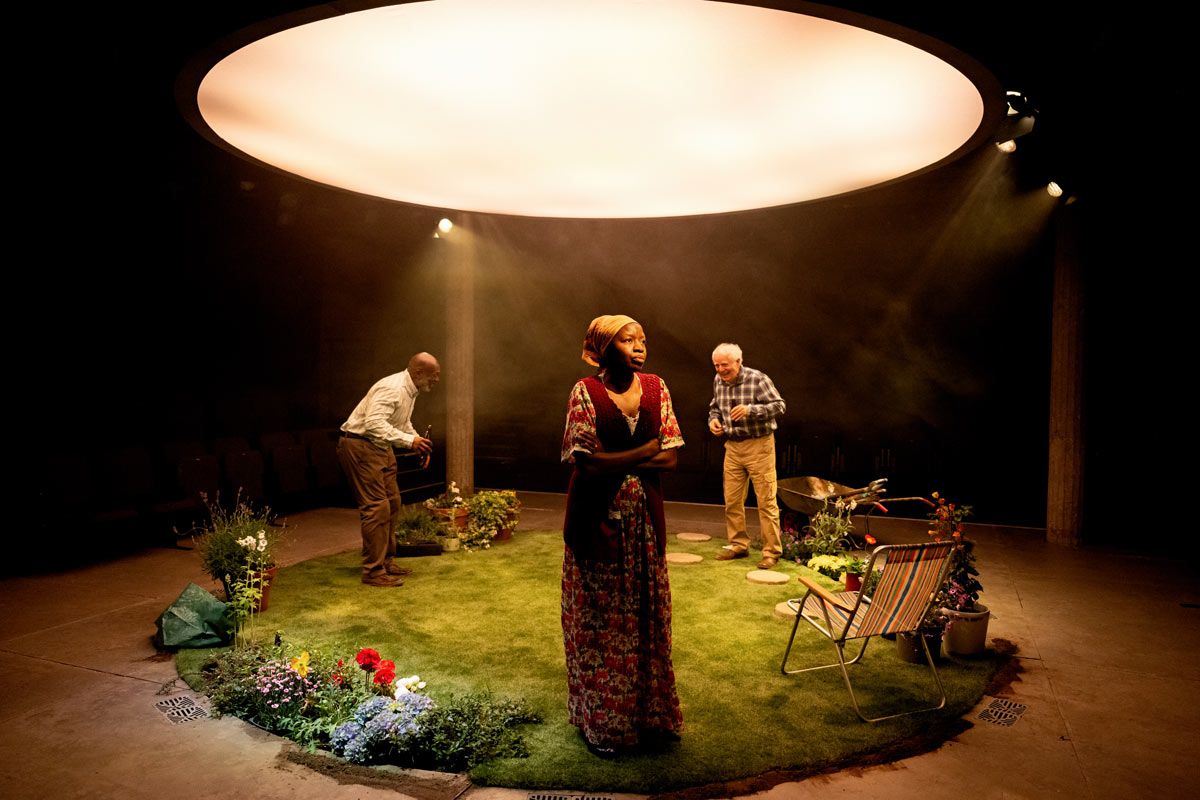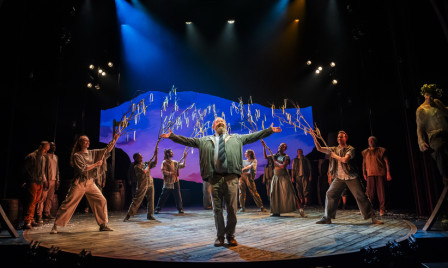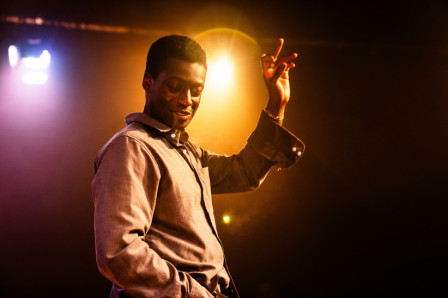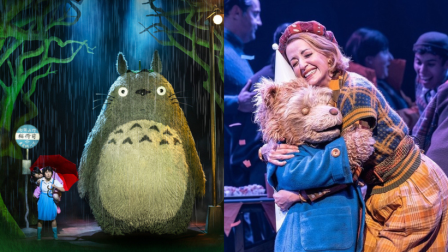Review: MISS MYRTLE’S GARDEN at Bush Theatre
Danny James King’s much anticipated MISS MYRTLE’S GARDEN opened this week at Bush Theatre. A funny, yet jarring and resonant family drama, it looks at the impact of a feisty matriarch’s cognitive decline, as past traumas and memories haunt her enjoyment of a placid and calm garden setting.
 Left to right: Mensah Bediako (Melrose), Diveen Henry (Miss Myrtle), Gary Liburn (Eddie) in Miss Myrtle's Garden at Bush Theatre. Photo by Camilla Greenwell.
Left to right: Mensah Bediako (Melrose), Diveen Henry (Miss Myrtle), Gary Liburn (Eddie) in Miss Myrtle's Garden at Bush Theatre. Photo by Camilla Greenwell.
Under the sharply sympathetic direction of Taio Lawson, we first encounter Miss Myrtle (the excellently restrained Diveen Henry) talking with her grandson Rudy (Michael Ahomka-Lindsay) and his ‘close friend’ Jason (Elander Moore). The two men clearly need to save money if they are to get a place of their own and hints are unsubtly dropped which suggest that by being nearer to Myrtle, they could better look after her. Acerbic, astute and no-nonsense, she sees through the gentle subterfuge but invites them to move in anyway. This inevitably leads to the pair hiding their relationship as mere friendship, which ultimately proves an oppressive and dishonest identity compromise for the more flamboyant stylist Jason. As a teacher at a catholic school however, Rudy has learned to be more guarded and sees the deception as a necessity. Myrtle also manages the kindly but unsubtle affections of a well meaning Irish widower Eddie (Gary Lilburn) who since the death of Myrtle’s husband Melrose (Mensah Bediako as the aforementioned spirited manifestation), helps tend her garden.
Presented in the round, designer Khadija Raza’s set, is a simple circle of lawn with a surrounding flower border, amidst which, seating and towels are arranged to facilitate the scenes and dialogue. Above, is an illumination panel which offers a less successful, gently psychedelic swirl of pastel colours evocative of a mental fog. During black-outs, the darkness is accompanied by discordant sounds, breaking the scenes into bite size nuggets of human interaction. The use of the device before the start of the play however, fights against the audience buzz and is actually unpleasant (one could argue, unnecessary).
Throughout the piece, Myrtle insists on people moving forward, rather than dwelling in the past — despite the frequent visits of her late husband’s spirit. During one such occasion, they dance to Rose Royce’s beautiful disco-era ballad “I’m Wishing On A Star” which was a no3 UK hit, back in 1978. It neatly ties-in the generational divide and triggered a flood of nostalgia for this reviewer, as only music can. During another conversation with Rudy, she discourages him from asking about his absent father and continually dwelling on things past, likening such behaviour to looking through a crack and only seeing 10 people, when there may have been 100. It’s a poignant observation which speaks to both her diminishing mental faculties and also the need to live in the present, with perhaps, one eye on the future.
MISS MYRTLE’S GARDEN runs at the Bush Theatre until 12 July.
Latest News

 Full cast announced for SEA WITCH at Theatre Royal Drury Lane
10 February 2026 at 10:49
Full cast announced for SEA WITCH at Theatre Royal Drury Lane
10 February 2026 at 10:49

 THE UNLIKELY PILGRIMAGE OF HAROLD FRY at Theatre Royal Haymarket - Production images released
10 February 2026 at 10:30
THE UNLIKELY PILGRIMAGE OF HAROLD FRY at Theatre Royal Haymarket - Production images released
10 February 2026 at 10:30

 Review: MILES at Southwark Playhouse (Borough)
10 February 2026 at 10:10
Review: MILES at Southwark Playhouse (Borough)
10 February 2026 at 10:10

 The Best Family Show in London: My Neighbour Totoro or Paddington the Musical?
10 February 2026 at 09:12
The Best Family Show in London: My Neighbour Totoro or Paddington the Musical?
10 February 2026 at 09:12